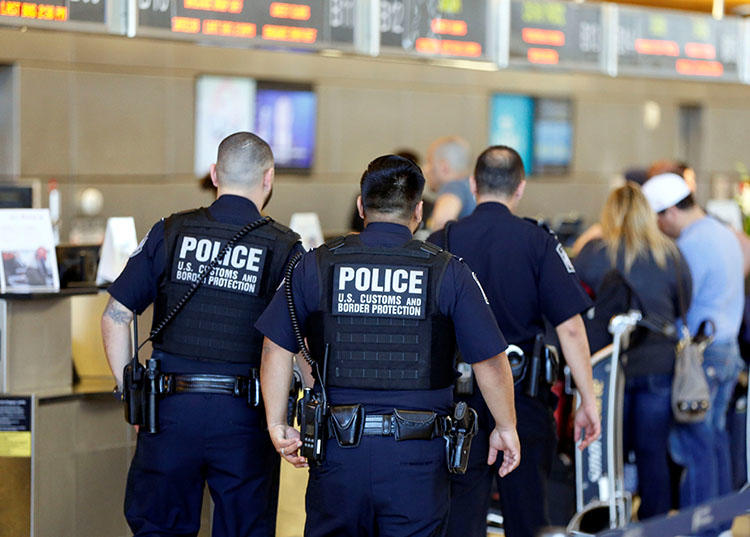Recommendations
The Committee to Protect Journalists offers the following recommendations:
To Congress
- Pass legislation that would require DHS to obtain a warrant before searching devices at the border, which is essential to protecting the privacy of journalists who are traveling into or out of the United States.
- Pass legislation that requires DHS to report the number of basic and advanced electronic device searches conducted at the border, along with demographic breakdowns of who these device searches affect, and the number of searches that result in evidence later used in a criminal case. These reporting requirements should include the number of people subject to device searches who object to device searches on the grounds that they are members of the media.
- The Senate Committee on Homeland Security and Governmental Affairs should hold a hearing to ask detailed questions of DHS about electronic device searches, including their impact on journalists, any guidelines the agency has in place regarding interactions with the media, and the number of device searches conducted pursuant a request by another agency, with statistics from each requesting agency.
Department of Homeland Security
- DHS should not use secondary screenings at the border to question journalists for the purpose of intelligence gathering that goes beyond the purpose of facilitating lawful travel entry for that individual.
- DHS should modify its policy on electronic device searches to require a warrant and probable cause before searching digital information contained on devices. In the case of journalists, it should work with media organizations to establish clear guidelines on when a warrant can be issued to search devices belonging to a member of the media, similar to those established by the Department of Justice.
- DHS should release the number of electronic device searches that CBP and ICE conduct at the behest of other agencies, including the number of device searches that are triggered in the TECS system by other agencies. It should provide information to the public regarding the number of searches that are part of criminal investigations, as well as the number that are part of intelligence gathering operations.
- DHS should ensure that agents in all of its subsidiaries receive ongoing training to ensure they are aware of, and sensitive to, press freedom issues and the rights of journalists.
- DHS should clarify whether and how it conducts searches for “classified information” crossing the border, and its role in investigating or cooperating with leak investigations, including a full and transparent disclosure of its investigation into CBP agent Jeffrey Rambo’s questioning of New York Times reporter Ali Watkins.
- DHS should ensure that it is responding to FOIA requests in a timely and complete manner. It should evaluate and improve its response to travelers who submit redress complaints related to their right to freedom of expression.
Newsrooms
- Newsrooms should ensure that journalists are trained in digital security when crossing the border. They should work with legal counsel and security experts to provide guidance for how journalists should respond to questioning at the border or requests to search their electronic devices.
- Journalists should take steps to minimize the amount of sensitive information that they are carrying across the U.S. border and ensure that they take appropriate steps to safeguard their digital security and that they are aware of their rights.
